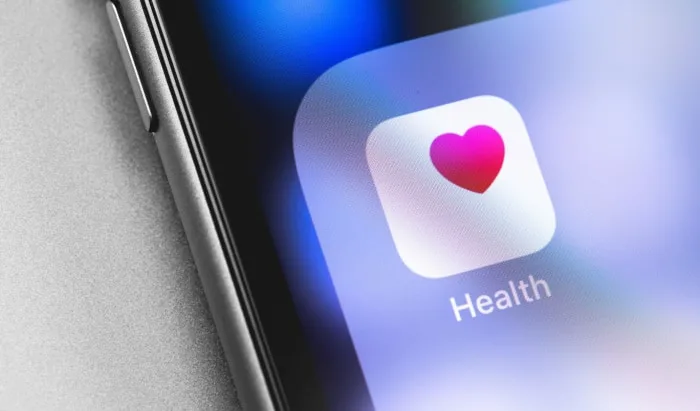Smartphone apps often have the answer to many of our pressing, daily questions. What is the weather forecast for the week? What’s the fastest way to get to your desired destination?
Among the almost 3 billion apps available for download on Google Play Store (and just under 2 billion on the Apple App Store), there are plenty of health-related options.
A good percentage of them are extremely useful, as they allow you to order your repeat prescriptions or plan your gym workouts and routines from the comfort of your home.
However, there are also concerns that certain apps, specifically fitness and calorie-tracking portals, could be detrimental to people’s mental health. In what way?
Here, we explore how to engage with health-tracking apps in a positive, constructive manner, while also highlighting how they might affect your mental health if you overuse them.
Are health-tracking apps any good?
There are many reasons someone would want to use a health-monitoring tool. This could be anything from measuring your heart rate and counting how many steps you complete each day to keeping your food intake under control.
In 2022, 44% of the UK population used – at least once – a health-tracking app, meaning that it is a widespread practice among smartphone users.
This can be viewed as an encouraging statistic, as it suggests that Brits are actively trying to find ways to stay fit and healthy.
In fact, these applications can promote healthy behaviour and manage your fitness levels on the go, becoming a handy option when it comes to identifying a problem.
For example, if you rarely feel refreshed as you leave your bed in the morning, you could use a sleep-monitoring tool to discover whether you wake up, snore, or toss and turn during the night.
Likewise, if you often feel irritable and under the weather, these tools can be useful to pinpoint potential triggers and provide some simple, in-the-moment meditation tips.
What’s more, health-tracking apps can help with the early detection of possible medical conditions. By keeping a close eye on some of your vital signs, from blood pressure to heart rate, these applications can spot warning signs of health problems.
This means that you can act in a timely fashion and seek medical attention to arrange a check-up for your own peace of mind.
With an all-round picture of your health and habits at hand, your doctor can make more informed decisions on any plans or treatment you may need.
Another positive aspect of health-tracking apps is that they allow you to improve your lifestyle routines.
People who use health-monitoring tools tend to be less sedentary than others and, on average, walk almost a mile more than those who don’t have a tracking application.
The good thing about these trackers is that they also include features that give you the chance to share your progress and activity with family, friends, and fellow app users.
This social aspect can encourage you to stick to your goals, carry on with your healthy diet or daily jogs, and help receive moral support from other people to keep ploughing through.
How health-tracking apps could impact your mental health
On the whole, health-tracking apps can have a wide range of benefits. But it has also been found that not all health-tracking apps are as precise and reliable as they seem.
According to the NHS-backed study, only around 20% of all health and medical apps meet clinical standards, are safe from hackers, and are able to protect people’s records.
This could have a negative impact on people’s physical wellbeing, especially if they follow potentially inaccurate advice for an extended period of time.
Dr Harriet Leyland, Clinical Advisor from myGP, explains: “Ensuring patient safety should be the key priority to any healthcare app. It’s crucial for apps to carefully consider the implications of any features they develop and the benefits they are trying to deliver.”
As always, moderation is key. If you rely on health-tracking apps too much, they could take their toll on your mental health. For example, they can:
- Put too much pressure on you – Health-tracking apps can put pressure on people, spurring you to go out for an evening jog, regardless of the weather. Of course, most apps are designed to be motivational. But inciting you to fit in a run, even though you don’t feel like one, can make you feel bad and disappointed in yourself. What’s more, because some health-monitoring apps set out one-size-fits-all objectives, they don’t take into account whether you are physically able to carry out something or not. This can cause users to push themselves too far, which could, in turn, lead to avoidable injuries and put you off from exercising altogether.
- Make it harder for you to listen to your body – Let’s say, for instance, that you have downloaded a calorie-monitoring app that tells you when and how much you should eat. In this scenario, you may find it difficult to listen to your internal needs, as you are too concentrated on hitting specific targets. By doing this, you may end up ignoring symptoms of hunger or fullness, meaning that you are not considering what is right for your body at a certain moment in time. Experiencing prolonged feelings of hunger can make you feel tired and ill-tempered and, therefore, have a negative influence on your mental well-being.
- Backfire – People use health-monitoring apps to improve their wellbeing and look after their health. But at times, tools such as sleep-tracking devices can have the opposite effect and aggravate your situation. In fact, they can make people feel anxious about their sleep, especially if they are telling someone they are not getting enough hours of rest. The growing preoccupation with having a regular sleep pattern can even escalate into insomnia because extensive worrying prevents you from dozing off. In turn, lack of sleep comes with an array of disadvantages (i.e. tiredness, low self-esteem, stress, etc.), which can have a serious impact on how you cope with your daily duties.
When looking for a solution to your issues, it is always important to seek the help of a professional. Yes, an app may help you figure out whether you may be sleep deprived or not. However, only a doctor can formulate a diagnosis and offer the right treatment to cure whatever is affecting your overall wellbeing.
Health-tracking apps are a convenient, informative tool to monitor your overall well-being. The best way to make the most of them, however, is to take their tips with a pinch of salt, stick to diets and activities that you are comfortable with, and contact your GP for any in-depth guidance.
- RV3-BB rotavirus vaccine at birth boosts microbiome - 8th May 2025
- No Mind Left Behind: Support the Carers - 4th May 2025
- Climate change causes longer pollen seasons in capital cities - 4th May 2025


